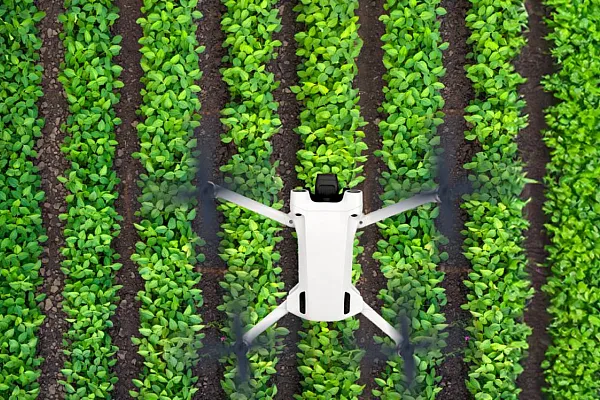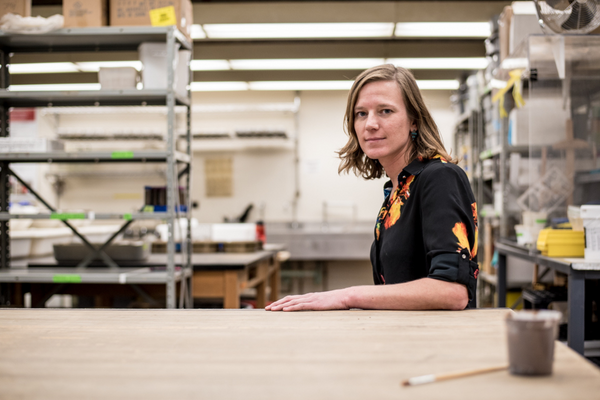
Member Spotlight: Kirsten Kurtz, Soil Health Lab Manager and SSSA Member
What project are you currently working on that excites you the most?
I am really excited about my Soil Painting Initiative. I founded this initiative to raise the profile of soil science through my soil art. I'm currently working on a commissioned soil painting for a colleague depicting a hand making the I love you sign. This painting is special because it will be a gift for my colleague’s mother who taught him sign language as a child so that she could communicate things like “say thank you.” I also have an upcoming event at the Johnson Art Museum on the Cornell campus where we will be painting with soil for Earth Day. It’s one way we can help the public understand that soil is a critical natural resource, as important to our quality of life as clean air and water.

What is the best piece of career advice you’ve received?
You can always counter propose. I tend to say “yes,” which has served me well in my career. But sometimes it is necessary to counter propose instead of simply being agreeable.
I also had a mentor tell me, “You cannot know something that you haven’t been exposed to.” This advice has helped me remain patient when training new students or technicians.
Do you have a mentor that has helped you in your professional career? How have they helped you?
I credit many mentors and colleagues with helping me get to where I am. They have taught me various programs like the Adobe Creative Suite, WordPress, and R-Studio. In my experience, it's easier to learn how to use a program or develop other skills from a person instead of from YouTube or an instruction manual. In turn, I have taught many others what I know about these programs, including sharing my R code for instance.
As a woman, what is a challenge/obstacle you have faced in your career?
Before I started working in academia, I worked for many years in in the grape and wine industry. Viticulture is what inspired my interest in soils and science. That interest in science led me to apply for a job as an assistant wine maker. After I got hired, my new employer let me know that one of the references I provided had described me misogynistically, speaking mostly to my appearance. But the rest of my references provided glowing reviews and spoke to my work ethic, which is why I got the job. Needless to say, I won’t use that other reference again. But it makes me wonder how many times I’ve had similar treatment unknown to me.
What does Women’s History Month mean to you? How does it fall into the context of your industry?
Women’s History Month is a reminder of how hard our ancestors fought for women’s rights. In the United States, women have had the right to vote for just over one hundred years. In my opinion, it is essential that women stay active in our democracy to preserve our rights for future generations.
And when I first started working in academia, in agriculture, and as a soil scientist, I was often one of just a few women in the room. I’ve witnessed in the last decade how our numbers have swelled, and now I regularly interact with other female scientists in positions of power and with promising young women who will lead the next generation of scientists.